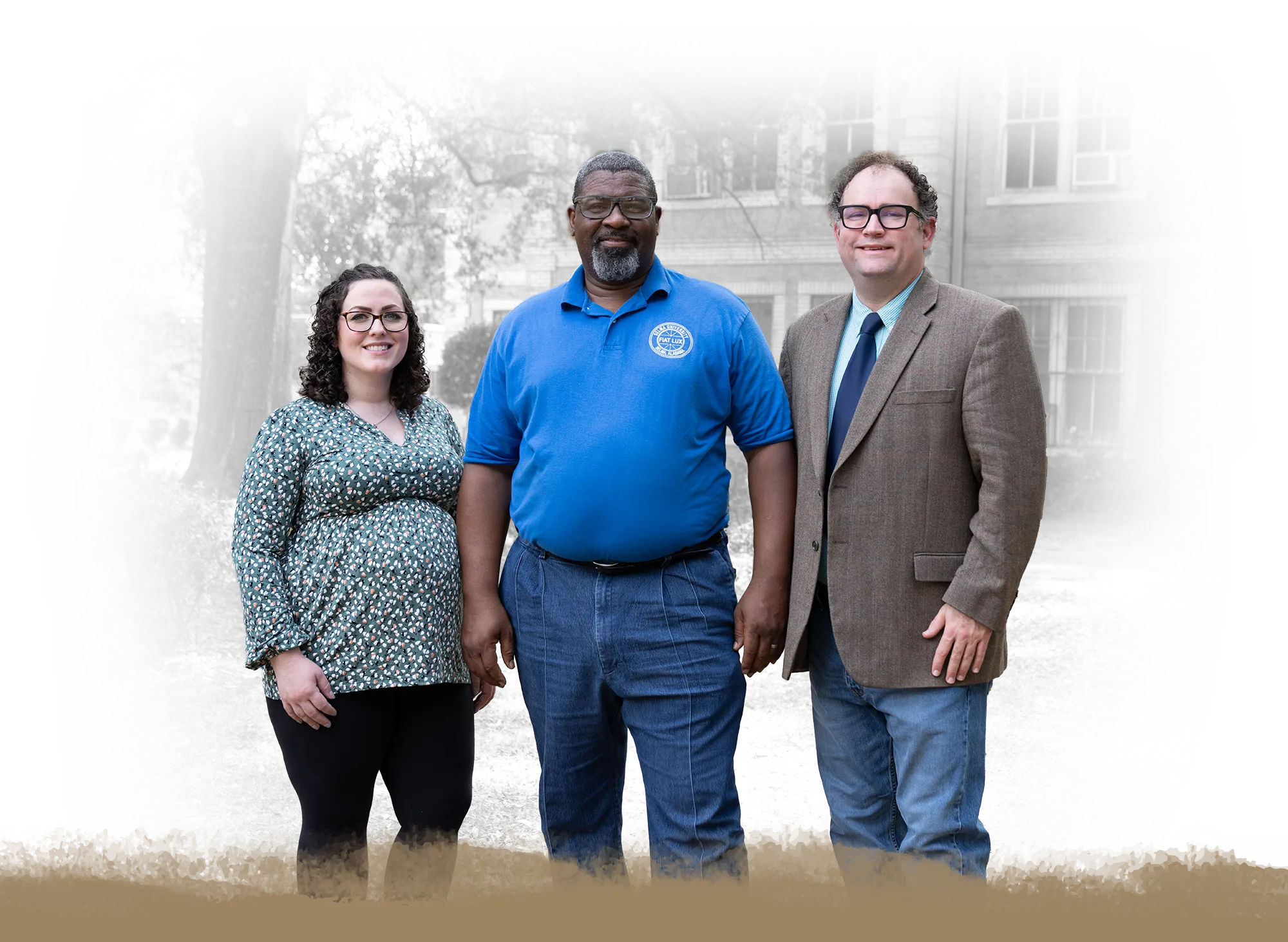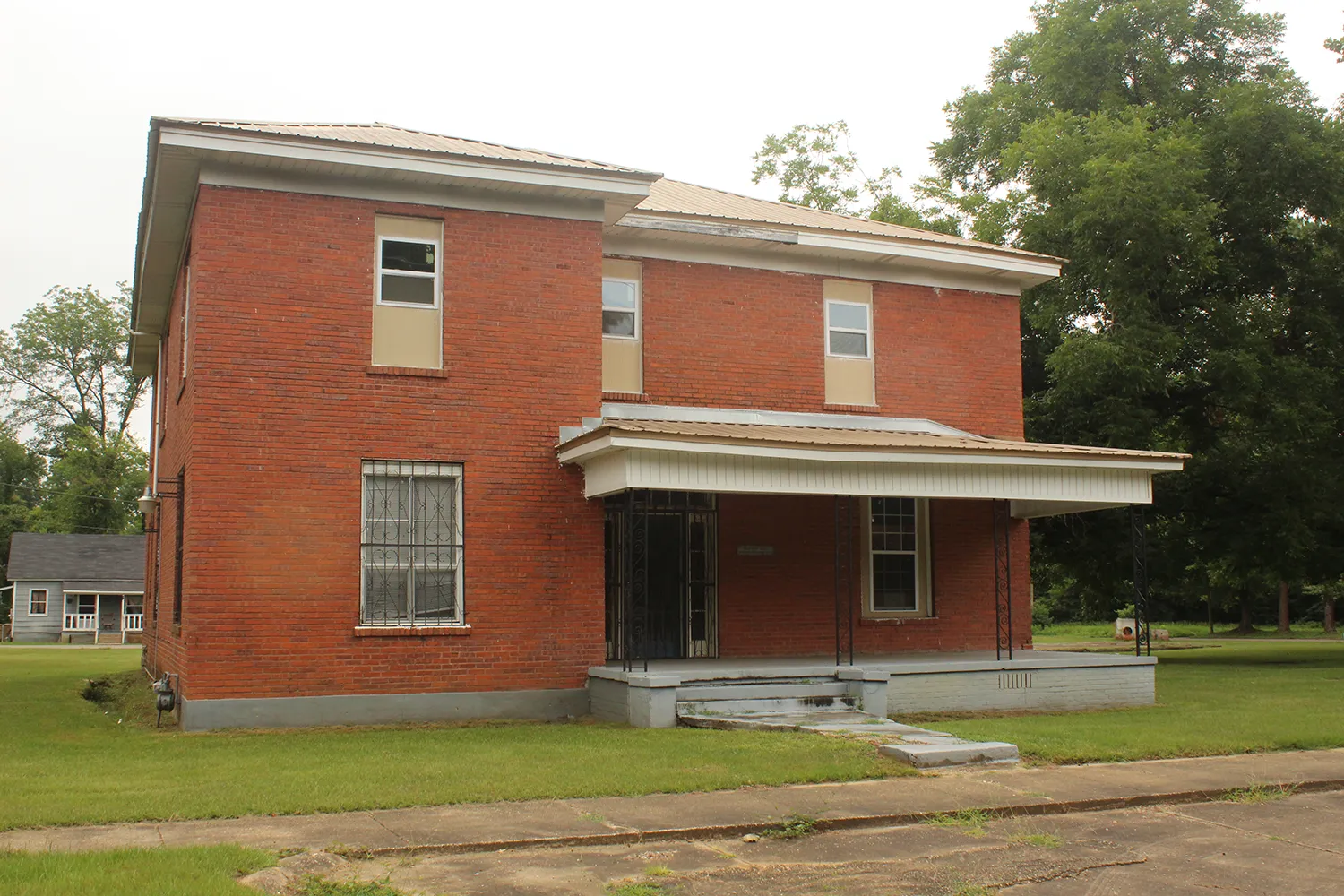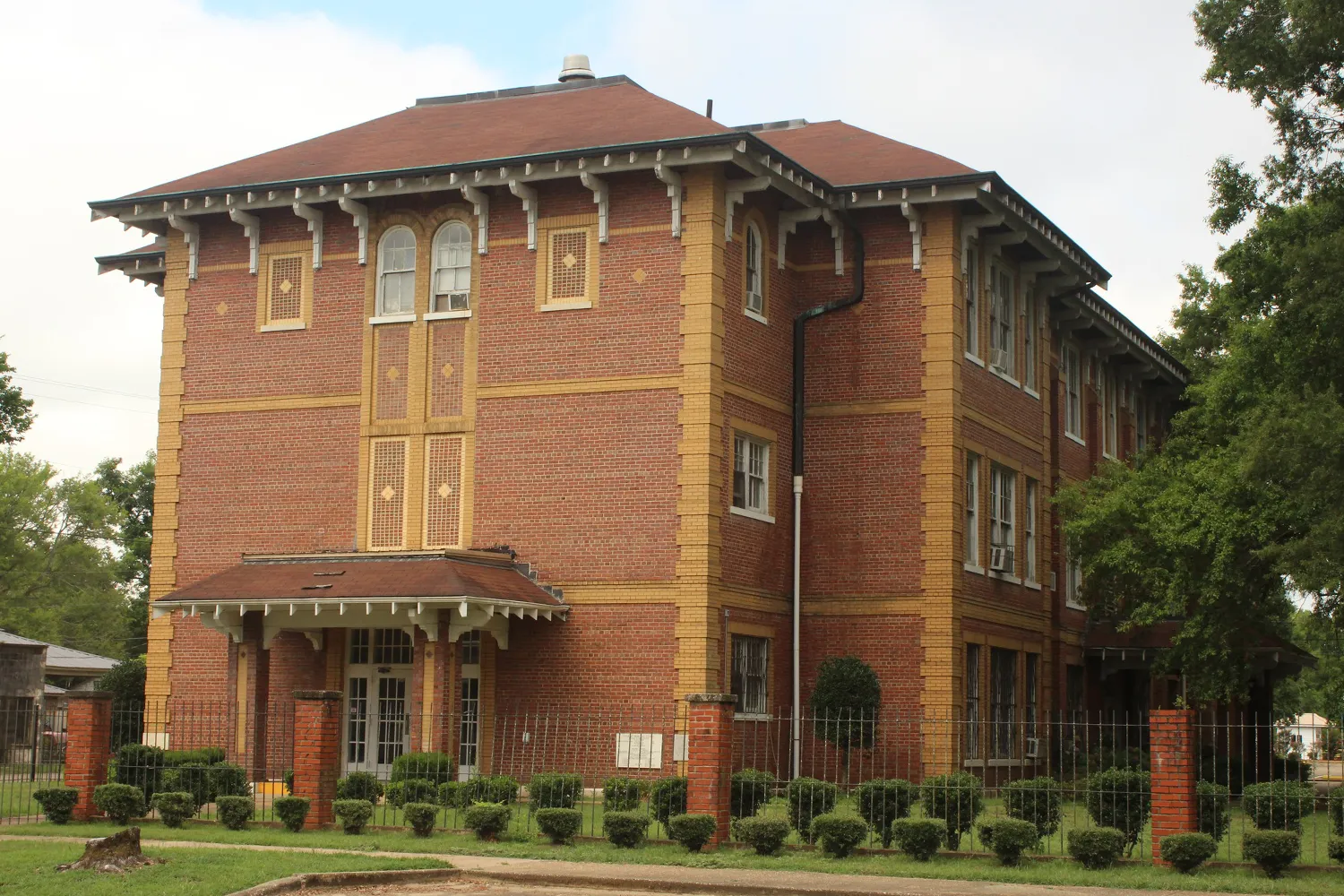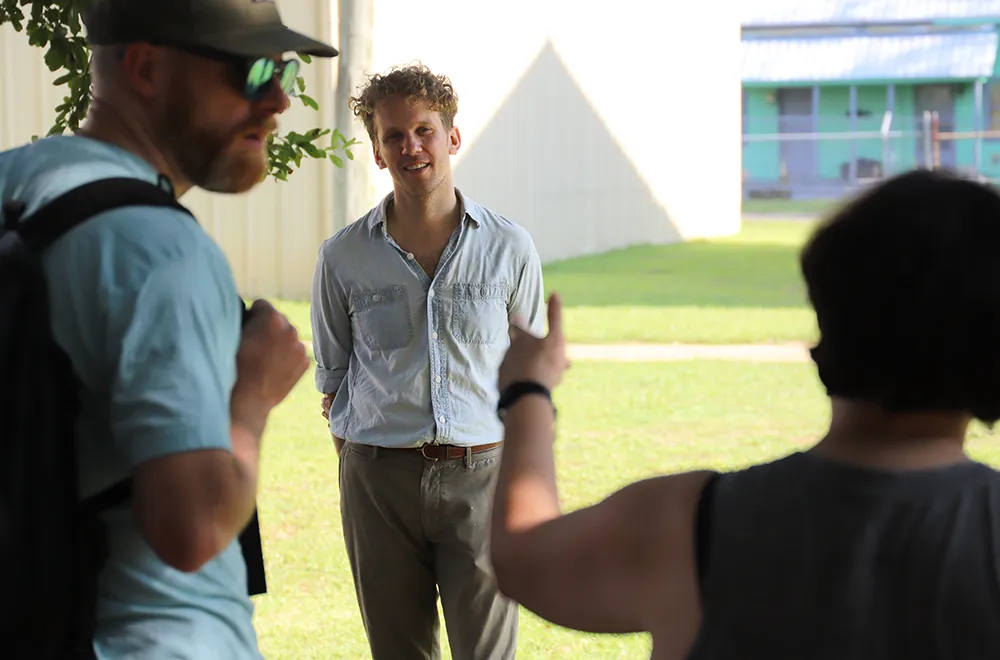
Auburn helps Selma University preserve past, build future with campus restoration projects
Hébert wrote the nomination at no charge to Selma University, “just to help out.” Angion said it was the start of a long-term relationship between the two universities.
“We’ve grown to be not just colleagues in terms of academia, but friends mostly because of his love for the area,” Angion said. “The genuine personalities and friendship of the faculty, namely Dr. Keith Hébert and Dr. Elijah Gaddis, have taken a personal interest in helping to study and preserve the history of the university. Through that relationship, Dr. Hébert was the lead writer in the proposal to get Selma University designated as a national historic site. Without his research and hours of dedicated writing, it would not have happened, at least not anytime soon.”

Dinkins Memorial Hall is the heart of Selma’s campus. It holds all administrative offices, classrooms and a chapel that seats 400 people. When it was built in 1904, it served many of the same purposes, but time and weather have caused the building to deteriorate.
The hall was destroyed by fire in 1921, and redesigned by Robert Taylor, the first African American architect to graduate from MIT and receive an architect’s license, who also designed much of Tuskegee University’s campus.
With the grant money, Selma will repair Dinkins’ roof, electrical system, windows and heating and air. Hébert said restoring the chapel will also preserve its story in the Civil Rights Movement. Hébert said movement leaders were often Black Baptist ministers who studied or visited Selma University, including Ralph Abernathy and Martin Luther King Jr.


In May, Auburn helped secure another NPS grant. Selma University received $750,000 from the Historic Preservation Fund’s Historically Black Colleges and Universities grant program to restore Pollard Hall.
Pollard Hall was built in 1916, and unlike Dinkins, has never been rebuilt. Robert T. Pollard, who was born into slavery, rose to be university president and expanded Selma’s facilities and course offerings during his tenure, built the hall as a president’s home.
Laura King, a graduate student in the Department of History, conducts research for the Pollard Hall restoration. She said historic buildings across the Black Belt and their stories have already been lost to time and the elements.
“You risk losing the heritage and almost what makes Selma University so important with those connections to slavery, to free people, to people trying to improve their communities,” King said. “Pollard Hall is a crucial symbol of what that means, the people who have passed through this campus and what they’ve done in their communities.”
Pollard Hall will require complete restoration to make the building structurally sound again. In addition to serving as the university president’s home, Pollard has also been a dormitory space and meeting center for visitors including Booker T. Washington.
King said the restoration project will not just save the building, but save its story, and restore it to its former beauty.
“As a student of history, it provided me with the opportunity to practically apply the things I’m learning to a community that has been here for so long and means so much to the Black Belt,” King said. “When you visit Selma University, and you meet Dr. Angion, it’s very easy to see why his mission is so important and to be a part of the transformation happening at the university that’s fallen on such hard times. It’s important to me to use my education for a greater good, and not just for myself to get a degree, but to apply those principles in helping the community.”
Because of Pollard Hall’s location at the front of campus, Angion hopes after the building is restored, it can be transformed into a museum and cultural technology center to introduce visitors to the rich history of Selma.


Dr. Burwell returned to Selma and opened its first African American-owned pharmacy. He also established an infirmary on Selma’s campus, which was demolished later, but will be recreated in the museum.
Angion hopes those stories educate and inspire future servant leaders.
“We want to tell the story, share with the public the various things that happened here at Selma University and all of the people who were educated here and went on to make great contributions to the nation,” Angion said. “On the second floor, we want to have a place where people in the community can come and actually have conferences. That’s part of the plan for Pollard Hall and the rest of the buildings that we’re hoping to have renovated. We want to make something that is really attractive that shows from the very early days of Selma University.”
Hébert has connected other Auburn faculty and colleges to Selma in order to meet a variety of needs. Faculty in the School of Communication and Journalism helped Selma create a newsletter for donors and alumni, and College of Architecture, Design and Construction faculty spent time on campus assessing the buildings that need renovation.
Hébert said the Auburn-Selma partnership helps each university expand connections and rediscover the importance of service and collaboration.
“We’re trying to use the power of Auburn University to add to the history and the legacy and help with the current need there is in this community for institutions like Selma University,” Hébert said. “I’m really hopeful that what we’ve started is just the very beginning of what needs to happen here, which is developing a better relationship between Auburn University as the flagship land grant institution in the state of Alabama and communities like Selma who could benefit from our collaborative efforts. To find new resources, to build new partnerships that we can all together build a stronger Alabama.”
Selma University, which is accredited by the Association for Biblical Higher Education, is also working to become fully federally funded. Angion said Auburn’s help keeps them on the path to rebuilding their reputation as a destination for service leadership.
“In 10 years, I’m desirous overall that Selma University will be known as a very effective, premier small Bible college in this area for producing servant leaders. In addition to that, we want to be known as a site for preserving the history of the university and the surrounding area,” Angion said. “Having people who will avail themselves to be colleagues in situations where we can’t afford to pay them, makes it really, really special. We don’t have the status of Auburn University, but they choose to come to us and not ask anything in return other than let’s grow together.”
